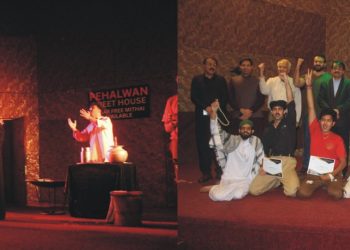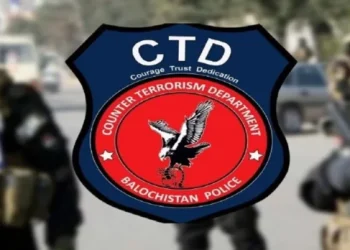DATELINE REPORT
Abbottabad: , Abuzar Ghafari, a second-year BDS student at Frontier Medical College and a resident of Swat, KPK, tragically lost his life. Abuzar died due to a harrowing nexus of negligence, mismanagement, and the utter unpreparedness of hospital staff at Shahina Jameel Teaching Hospital, Abbottabad.
A medical emergency that could have been easily managed turned into a fatal tragedy—one that should never have happened.
According to eyewitnesses, Abuzar began feeling unwell during a pharmacology lab around 9:00 AM. Without warning, he collapsed to the ground, showing clear signs of a severe epileptic seizure: frothing at the mouth and convulsing limbs. Abuzar had no known history of any medical condition.
Shockingly, the lecturer present—who is also a registered medical practitioner with the Pakistan Medical and Dental Council (PMDC)—failed to take the situation seriously. Instead of intervening or calling for help, he allegedly advised students to “leave him alone,” claiming that most epileptic attacks resolve on their own. Abuzar was left lying on the cold floor, turning visibly cyanotic, for 5–7 minutes—long enough to cause significant brain damage due to a prolonged seizure and lack of oxygen.
Eventually, as his body grew cold and signs of cyanosis became undeniable, his fellow students took matters into their own hands. They rushed him to the emergency department of Shahina Jameel Teaching Hospital, located just two minutes away from the lab. To their horror, no doctors or nurses were present in the emergency ward—no one to treat a young man fighting for his life.
Eyewitnesses pleaded for help and tried to contact the college principal and the hospital’s clinical head. The principal reportedly arrived about ten minutes later, followed by the institute’s owner. During all this time, Abuzar lay unattended on a bed in an empty emergency room. Valuable time was lost attempting CPR, even though the hospital administration knew it lacked the essential resources to manage the situation. Worse still, Abuzar was not immediately transferred to a tertiary care facility, even though he had no detectable pulse.
Eventually, the decision was made to shift him to Ayub Teaching Hospital. However, the standby ambulance was not mechanically fit for transport. After another 10–15 minutes of delay, Abuzar was finally taken to Ayub in a private car.
At Ayub Teaching Hospital, Abuzar finally received the response he should have gotten from the start. The emergency team administered two rounds of CPR without success. On the third attempt, they managed to restore his pulse. He was moved to the ICU and placed on a ventilator. A member of the emergency team reportedly told eyewitnesses, off the record, that Abuzar was already brain-dead by the time he arrived. Later that same evening, Abuzar succumbed to his injuries.
This is not just the story of a young student’s death—it is a chilling reminder of the institutional and systemic failures that plague many healthcare facilities in Pakistan, particularly those linked to medical teaching institutions. With basic emergency preparedness, timely intervention, and the presence of trained staff, Abuzar’s life could have been saved.
Medical students—those being trained to save lives—should not lose theirs due to the incompetence of the very institutions meant to educate and protect them. Abuzar’s tragic death raises urgent, uncomfortable questions:
The silence surrounding this incident must end. A third-party investigation is not only justified—it is necessary. Abuzar’s story deserves to be heard—not only to honour his memory but to ensure that no other student suffers a similar fate.



















